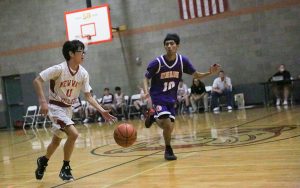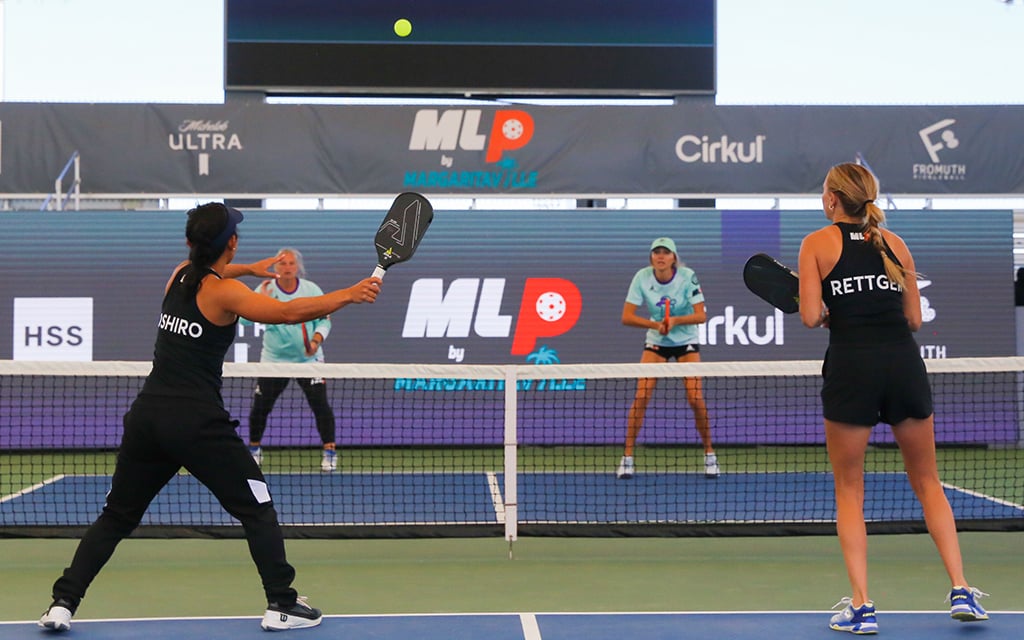PHOENIX – Although the roots of reading and writing can be traced to ancient Mesopotamia (now modern Iraq) nearly 5,400 years ago, those processes remain a challenge for many.
Just ask Asher Turgesen, a senior linebacker and running back at New Way Academy, a secular school in Phoenix for students with learning differences.
“I hated reading, I hated words,” Turgesen said. “I would just see a word and just know I couldn’t read it and couldn’t put energy into it.”
Like many with dyslexia, when Turgesen gravitated toward sports, he discovered happiness he could not find in the classroom.
The struggles Turgesen faced reflect the reality countless dyslexic children encounter every day at school. Some with dyslexia, a language-based disability that impairs reading ability due to struggles with speech sounds and the correlation of letters and words, are unaware of their learning differences.
“I would always think, ‘What is wrong with me? Why aren’t I like all these other kids?’” Turgesen said. “It’s so easy for them and I want to be like them. Reading is all around us and just being able to look at that and feel almost angry at yourself that you can’t understand it, was hard for me.”
Dyslexia is not uncommon. An estimated one out of 10 people, approximately 780 million, are dyslexic.

New Way Academy is a Phoenix school catering to children with learning differences. Many compete in athletics and thrive. (Photo by Nikash Nash/Cronkite News)
For Turgesen and Nathan Vandyke, a sophomore catcher on the baseball team at New Way Academy, playing sports is an escape from the academic world and a place where they are able to feel in control and on an equal playing field to the rest of their peers.
“The second that I step onto the field I’m happy,” Vandyke said. “I just know I’m going to have fun and I can’t really get mad while I’m there.”
Added Turgesen, “I started playing tackle football when I was in eighth grade and I loved it. In a way I felt like I belonged. I transitioned from that reading is difficult kind of thing to I can read the field. I could understand it and it was easy to pick up.”
Sports is not only an escape for dyslexic athletes but it can help them outside the athletic arena. Research by Barbara Senatore of Italy’s University of Salerno revealed that rhythmic gymnastics, for example, can improve concentration, self confidence and learning difficulties.
The sports world is filled with dyslexic athletes who have excelled at high levels, including NBA Hall of Fame guard Magic Johnson, Heisman Trophy winner Tim Tebow and Olympic shot putter Michelle Carter.
According to research conducted by Alison M. Bacon, an associate professor of psychology at England’s University of Plymouth, those with dyslexia often have a strong ability to analyze and visualize things, which are key proponents in playing sports.
“Many dyslexics have certain skills that are really good for team sports,” said Lisa Siegel, emeritus professor in the Department of Educational and Counseling Psychology and Special Education at the University of British Columbia. “One of them is three-dimensional visual spatial skills. That means that you can see things from different perspectives. So when you’re part of a team sport, you have to be aware of where your team members are and where the other team is, and where they are, the direction they’re moving, and all that.”
The ability to read words does not define intelligence. Many people with dyslexia have a knack for processing information in deep and creative ways that translate to athletic agility and aptitude.
“Sometimes when you struggle in school, you’re overcompensated with other skills,” said Michael Walker, Head of School at New Way Academy and its football coach. “I think what really helps dyslexic children is they think outside of the box. They kind of come at things from a different angle. They are able to critically think and can do things that your traditional brain or mind wouldn’t do.”
Similar to in the classroom, memorization is key while playing a sport and where roadblocks come in for people with dyslexia. Dyslexia affects short term memory, according to the British Dyslexia association.
Between a team’s plays, a sport’s concepts and the core fundamentals of playing any sport, memorization is required for success – and that’s not always easy for athletes dealing with dyslexia. Pressure by coaches could induce the same fear of being put on the spot in the classroom.
“One issue with coaches is they ask you a question and they are always looking for an instant answer,” said Sean Vandyke, Nathan’s father. “For a kid with dyslexia, that’s like the hardest thing for them. You put them on the spot to find the word. That’s the worst thing you can do for them.”
It’s a coach’s duty to understand the needs of the athlete, who simply needs longer to fully understand specific instructions.
People with dyslexia often don’t want others to know about their learning differences. It’s one thing to be singled out in the classroom because of dyslexia. It’s another to have to carry that into athletics.
“My coaches don’t know what I have,” Nathan said. “They think I’m normal. That’s why I don’t tell them because I feel that they will treat me differently. Sometimes I will just mess up more than other people do, and they will just not know why.”
Although living with dyslexia is not easy, people like Turgesen have not only learned to live with it but have fully embraced it.
“I definitely think me having dyslexia has made me more resilient to hardships and stuff like that,” Turgesen said. “It makes me competitive. Now I’m almost glad I have it. I’m just going to be happy with who I am right now. You can’t go back in time and change stuff and even the hard stuff is what makes you a better person. I think maybe if you don’t go through those hard things, you won’t get better.
“And so that’s why dyslexia, even though it was really hard at first, it changed me for the better.”


